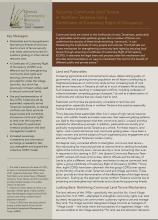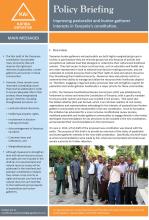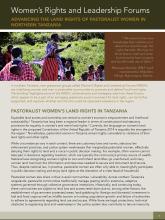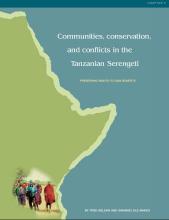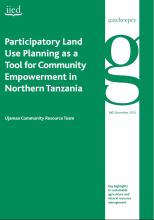Land Library
Welcome to the Land Portal Library. Explore our vast collection of open-access resources (over 74,000) including reports, journal articles, research papers, peer-reviewed publications, legal documents, videos and much more.
/ library resources
Showing items 1 through 9 of 9.The promulgation of the Kenyan Constitution 2010 brought into place concerns about the urgency for land reform. Land reforms hold the key to solving some of Kenya’s greatest challenges such as landlessness, community cohesion, food security and sustainable development.
Illegal and irregular allocations of public land were a common feature of the Moi regime and perhaps it’s most pervasive corrupt practice.
Communal lands are central to the livelihoods of many Tanzanians, particularly to pastoralists and hunter-gatherer groups. But a number of factors can undermine the security of these lands remaining ‘communal,’ in turn threatening the livelihoods of many people and cultures.
The first set of the land laws were enacted in 2012 in line with the timelines outlined in the Constitution of Kenya 2010.
The first draft of the Tanzanian constitution incorporates many provisions that will improve the rights and interests of pastoralists, huntergatherers and women in these communities.
In northern Tanzania, new grassroots groups called Women’s Rights and Leadership Forums (WRLFs) are mobilizing women and men in pastoralist communities to promote and defend local land rights.
Conventional notions of the ‘land parcel’ have been extended: previously unrecognized tenures including customary, nomadic, or communal interests are now incorporated into the concept.
This chapter addresses issues related to securing access and rights to resources, and gaining benefits from the resource within the context of one community-based initiative in the village of Ololosokwan in Tanzania.
This paper presents several case studies to show how the Ujamaa Community Resource Team (UCRT) has been working within Tanzania’s legal and policy framework to support a diverse range of pastoralists, agro-pastoralists and hunter-gatherers, all of whom face fundamental threats from external appro



